Polysaccharides
How to submit an article:
- Registered users can submit any published journal article that has a unique DOI (Digital Object Identifier) name or link to Research Hub.
- For example, you can paste the full DOI link:
https://doi.org/10.1109/5.771073or just the DOI name:10.1109/5.771073into the field above and click submit. - The person who is first to submit a valid article to Research Hub will forever be credited for it, and every article submission earns you +6 Research Points.
Related Topics
Published research studies are articles that present the findings of original research that has undergone a peer-review process and has been made publicly available in scholarly journals, books or other media.
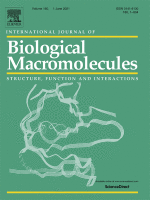
Tremella aurantialba polysaccharides alleviate ulcerative colitis in mice by improving intestinal barrier via modulating gut microbiota and inhibiting ferroptosis
2024 Nov International Journal of Biological Macromolecules Peng G, Wang S, Zhang H, Xie F, Jiao L, Yuan Y, et al.
Experimental Study Animal Study Gut Microbiota Ulcerative Colitis Intestinal Barrier Snow FungusA polysaccharide from Tremella aurantialba improves ulcerative colitis symptoms by targeting epithelial cell ferroptosis and modulating the gut microbiota.

Polysaccharides from Polygonatum cyrtonema Hua prevent post-traumatic stress disorder behaviors in mice: Mechanisms from the perspective of synaptic injury, oxidative stress, and neuroinflammation
2024 Jan Journal of Ethnopharmacology Xie P, Chen L, Wang J, Wang X, Yang S, Zhu G
PSP prevents SPS-induced PTSD-like behaviors and synaptic damage by regulating oxidative stress and NLRP3-mediated inflammation through the Nrf2/HO-1 signaling pathway.
Experimental Study Animal Study PTSD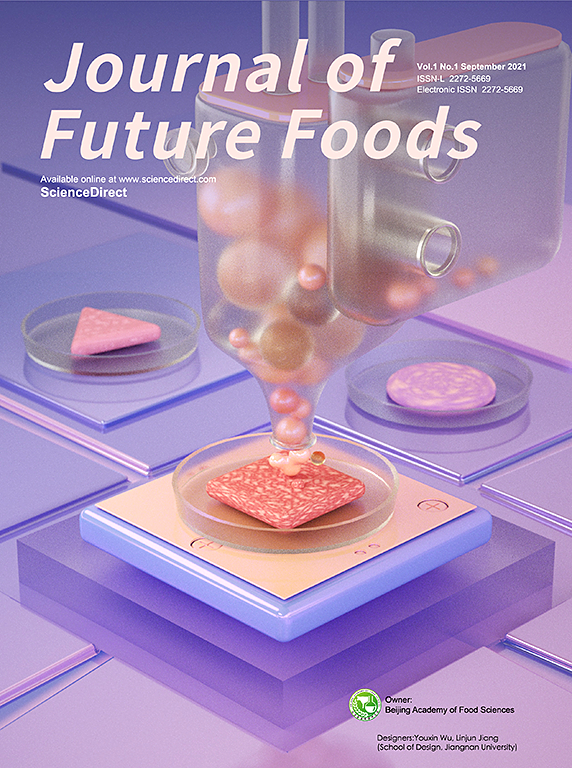
A review on the application, phytochemistry and pharmacology of Polygonatum odoratum, an edible medicinal plant
2023 Sep Journal of Future Foods Bi J, Fang H, Zhang J, Lu L, Gu X, Zheng Y
Through a comprehensive analysis of the chemical composition and pharmacological effects, it is presumed that the main active ingredients are homoisoflavanones, polysaccharides, saponins, and lectins, and the pharmacological effects are antitumour, anticancer, antioxidant, delayed aging activity, slowing senescence, relieving fatigue and immune regulation.
Review Article Yu Zhu
Extraction, structural-activity relationships, bioactivities, and application prospects of Pueraria lobata polysaccharides as ingredients for functional products: A review
2023 Jul International Journal of Biological Macromolecules Wang J, Dai G, Shang M, Wang Y, Xia C, Duan B, et al.
It was found that PLPs possess various bioactivities, including antioxidation, antidiabetic, immunomodulatory, hypolipidemic, antibacterial activities, regulation of intestinal flora, etc. The linkage patterns of glycosidic bonds might influence the bioactivities of PLPs. Meanwhile, PLPs have great development prospects in the health food and medical industries due to their non-toxicity. These discoveries establish a solid foundation for expanding the application and investigations of PLPs.
Review Article Ge Gen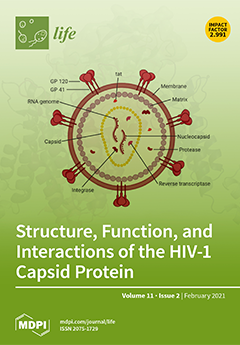
The Role of Seaweed Polysaccharides in Gastrointestinal Health: Protective Effect against Inflammatory Bowel Disease
2023 Apr 16 Life Liyanage NM, Nagahawatta DP, Jayawardena TU, Jeon YJ
Systematic Review Digestive Health Inflammatory Bowel Disease SeaweedSeaweed polysaccharides, especially those found in the cell walls of marine algae, hold significant potential as a natural, complementary treatment for Inflammatory Bowel Disease (IBD).
Research insights are moderated by the Research Hub team and offer an at-a-glance overview of interesting research findings.

2024 International Journal of Biological Macromolecules
A polysaccharide from Tremella aurantialba improves ulcerative colitis symptoms by targeting epithelial cell ferroptosis and modulating the gut microbiota.
Experimental Study Gut Microbiota Intestinal Barrier Snow Fungus Ulcerative Colitis
Tremella aurantialba polysaccharides alleviate ulcerative colitis in mice by improving intestinal barrier via modulating gut microbiota and inhibiting ferroptosis
Peng G, Wang S, Zhang H, Xie F, Jiao L, Yuan Y, et al.

2023 Life
Seaweed polysaccharides, especially those found in the cell walls of marine algae, hold significant potential as a natural, complementary treatment for Inflammatory Bowel Disease (IBD).
Systematic Review Digestive Health Inflammatory Bowel Disease Seaweed
The Role of Seaweed Polysaccharides in Gastrointestinal Health: Protective Effect against Inflammatory Bowel Disease
Liyanage NM, Nagahawatta DP, Jayawardena TU, Jeon YJ

2023 Frontiers in Nutrition
Kiwifruit polysaccharides may alleviate the toxic effects of acrylamide by improving gut health and enhancing bile acid metabolism.
Animal Study Bile Acid Gut Microbiota Kiwifruit
Effects of kiwi fruit (Actinidia chinensis) polysaccharides on metabolites and gut microbiota of acrylamide-induced mice
Chen M, Chen X, Wang K, Cai L, Liu N, Zhou D, et al.

2022 Journal of Functional Foods
Polysaccharides from natural food sources like fungi and plants can significantly enhance intestinal health and prevent ulcerative colitis (UC) through various physiological activities.
Review Article Ulcerative Colitis
The latest progress of natural food polysaccharides preventing ulcerative colitis by regulating intestinal microbiota
Pan X, Yin M, Guo M, Niu X, Han L

2022 Frontiers in Pharmacology
Oral administration of Tremella fuciformis polysaccharides may constitute a new, effective therapy for Atopic dermatitis, improving both immune response and intestinal microbiota.
Experimental Study Eczema Gut Microbiota Snow Fungus
Tremella fuciformis polysaccharides alleviate induced atopic dermatitis in mice by regulating immune response and gut microbiota
Xie L, Yang K, Liang Y, Zhu Z, Yuan Z, Du Z
Review Articles
Review articles summarise and critically evaluate the current state of research on a specific topic or field by synthesising multiple primary research studies.

A review on the application, phytochemistry and pharmacology of Polygonatum odoratum, an edible medicinal plant
2023 Sep Journal of Future Foods Bi J, Fang H, Zhang J, Lu L, Gu X, Zheng Y
Through a comprehensive analysis of the chemical composition and pharmacological effects, it is presumed that the main active ingredients are homoisoflavanones, polysaccharides, saponins, and lectins, and the pharmacological effects are antitumour, anticancer, antioxidant, delayed aging activity, slowing senescence, relieving fatigue and immune regulation.
Review Article Yu Zhu
Extraction, structural-activity relationships, bioactivities, and application prospects of Pueraria lobata polysaccharides as ingredients for functional products: A review
2023 Jul International Journal of Biological Macromolecules Wang J, Dai G, Shang M, Wang Y, Xia C, Duan B, et al.
It was found that PLPs possess various bioactivities, including antioxidation, antidiabetic, immunomodulatory, hypolipidemic, antibacterial activities, regulation of intestinal flora, etc. The linkage patterns of glycosidic bonds might influence the bioactivities of PLPs. Meanwhile, PLPs have great development prospects in the health food and medical industries due to their non-toxicity. These discoveries establish a solid foundation for expanding the application and investigations of PLPs.
Review Article Ge Gen
The Role of Seaweed Polysaccharides in Gastrointestinal Health: Protective Effect against Inflammatory Bowel Disease
2023 Apr 16 Life Liyanage NM, Nagahawatta DP, Jayawardena TU, Jeon YJ
Systematic Review Digestive Health Inflammatory Bowel Disease SeaweedSeaweed polysaccharides, especially those found in the cell walls of marine algae, hold significant potential as a natural, complementary treatment for Inflammatory Bowel Disease (IBD).
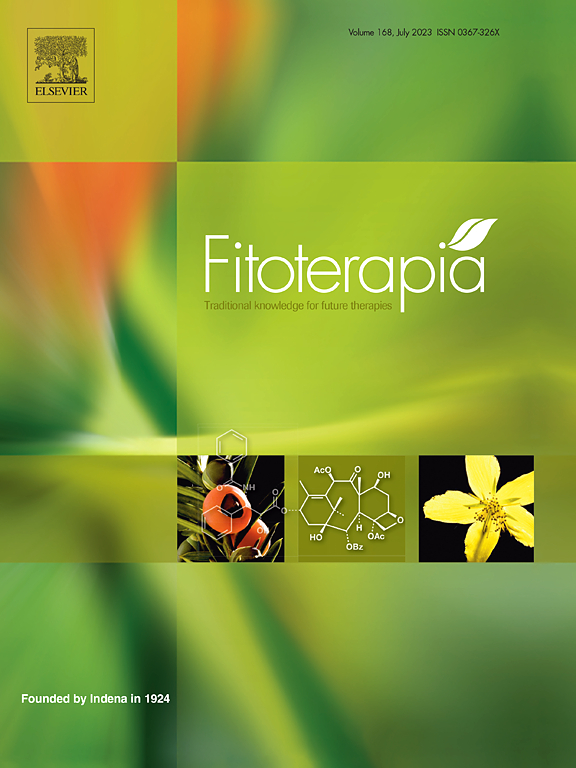
Advances in the chemical constituents, pharmacological properties and clinical applications of TCM formula Yupingfeng San
2023 Jan Fitoterapia Bai Y, Wei W, Yao C, Wu S, Wang W, Guo D
The potential bioactive constituents of this formula could be classified as polysaccharides, flavonoids, and saponins. The findings indicated that YPFS is a safe and effective therapeutic Chinese formula against various diseases, including immunological diseases, inflammations, tumors and pulmonary diseases, but only a few relevant randomized, double-blind, placebo-control, and multi-center clinical trials were reported.
Review Article Yu Ping Feng San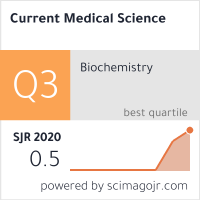
The Latest Research Advances of Danggui Buxue Tang as an Effective Prescription for Various Diseases: A Comprehensive Review
2022 Oct Current Medical Science Ma C, Jiang Y, Wang Y, Xu R
Based on TCM theory, DBT is mainly used to treat fatigue, thirst, weakness, women’s menstrual periods and postpartum fever, anemia, and other blood deficiency syndromes. Modern pharmacological experiments have demonstrated that DBT possesses a wide range of biological activities, thus showing remarkable medicinal value. The use of DBT can provide more treatment options for diseases with clinical manifestations such as hemocytopenia, DN, nerve damage, cardiovascular and cerebrovascular diseases, fibrosis, and cancer.
Review Article Huang Qi Dang Gui Bu Xue TangClinical Trials
Clinical trials are research studies that involve people and are conducted to evaluate the safety and efficacy of new treatments or interventions, such as drugs, medical devices, or behavioural therapies.
Study Protocols
Published study protocols are detailed plans that outline the objectives, methodology, statistical analyses, and organisation of a research study that have been made publicly available for others to review and use as a reference.
Presentation Slides

Experimental Study
A polysaccharide from Tremella aurantialba improves ulcerative colitis symptoms by targeting epithelial cell ferroptosis and modulating the gut microbiota.
Peng G, Wang S, Zhang H, Xie F, Jiao L, Yuan Y, Ma C, Wu H, Meng Z

Systematic Review
Seaweed polysaccharides, especially those found in the cell walls of marine algae, hold significant potential as a natural, complementary treatment for Inflammatory Bowel Disease (IBD).
Liyanage NM, Nagahawatta DP, Jayawardena TU, Jeon YJ

Animal Study
Kiwifruit polysaccharides may alleviate the toxic effects of acrylamide by improving gut health and enhancing bile acid metabolism.
Chen M, Chen X, Wang K, Cai L, Liu N, Zhou D, Jia W, Gong P, Liu N, Sun Y

Review Article
Polysaccharides from natural food sources like fungi and plants can significantly enhance intestinal health and prevent ulcerative colitis (UC) through various physiological activities.
Pan X, Yin M, Guo M, Niu X, Han L

Experimental Study
Oral administration of Tremella fuciformis polysaccharides may constitute a new, effective therapy for Atopic dermatitis, improving both immune response and intestinal microbiota.
Xie L, Yang K, Liang Y, Zhu Z, Yuan Z, Du Z

Review Article
Goji berries, notably their polysaccharides, exhibit protective effects against inflammatory bowel disease through the preservation of healthy gut microbiota.
Sun Q, Du M, Kang Y, Zhu MJ

Systematic Review
Tremella fuciformis polysaccharides effectively reduce inflammation in ulcerative colitis, promoting healing by restoring intestinal and mucus barrier functions.
Xu Y, Xie L, Zhang Z, et al
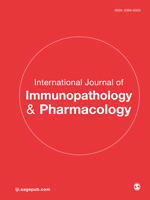
Systematic Review
Tremella polysaccharide is a safe natural active ingredient, which can be used in the prevention, treatment and rehabilitation of diseases.
Ma, X., Yang, M., He, Y., Zhai, C., & Li, C.
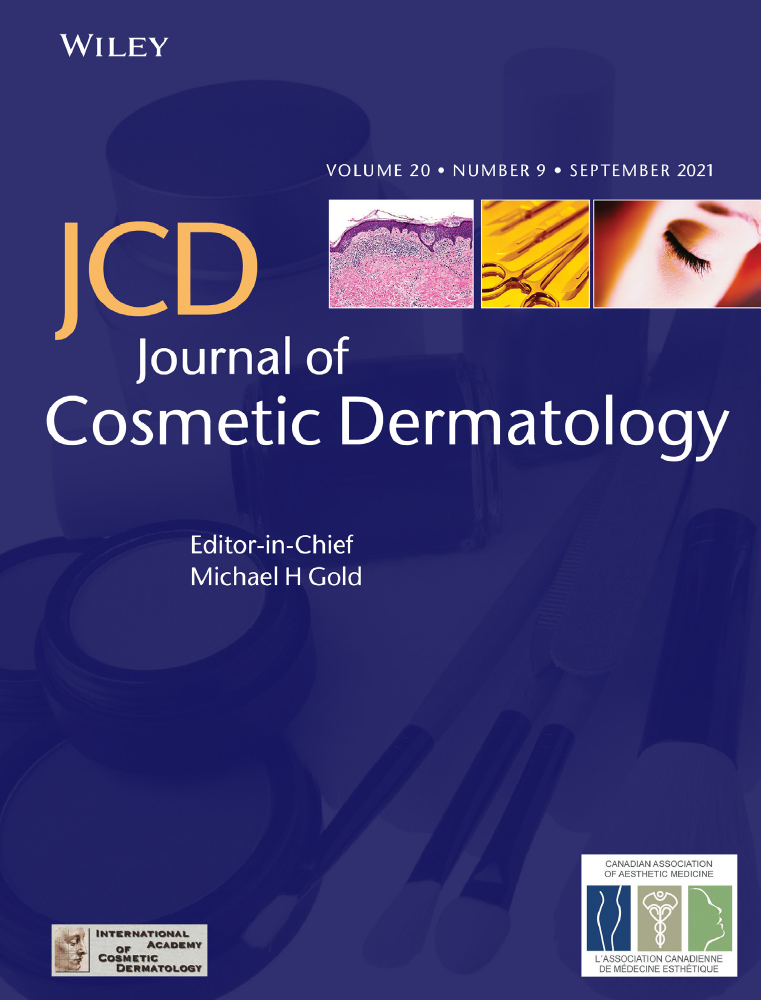
Systematic Review
These results indicate that a certain concentration of snow fungus polysaccharides can effectively alleviate skin damage caused by UVA, and they may be used as an effective component of cosmetics.
Fu H, You S, Zhao D, An Q, Zhang J, Wang C, Wang D, Li M.
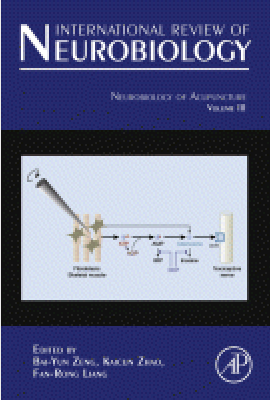
Review Article
Goji berries have significant potential as a natural medicine in anticancer efforts due to their high content of active compounds.
Anna Wawruszaka,Marta Halasaa,Karolina Oklab
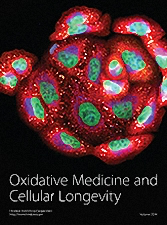
Experimental Study
Dandelion polysaccharide (DP) can potentially reduce iron overload in hepatocellular carcinoma (HCC) by downregulating hepcidin levels and inhibiting the IL-6-activated JAK-STAT signaling pathway.
Ren F, Yang Y, Wu K, Zhao T, Shi Y, Song M, Li J

Review Article
Seaweed extracts and polysaccharides are effective candidates for developing drugs and functional nutrition products to treat inflammatory bowel disease.
Besednova NN, Zaporozhets TS, Kuznetsova TA, Makarenkova ID, Kryzhanovsky SP, Fedyanina LN, Ermakova SP

Systematic Review
The mung bean has been documented to ameliorate hyperglycemia, hyperlipemia, and hypertension, and prevent cancer and melanogenesis, as well as possess hepatoprotective and immunomodulatory activities.
Hou, D., Yousaf, L., Xue, Y., Hu, J., Wu, J., Hu, X., Feng, N., & Shen, Q. (2019).
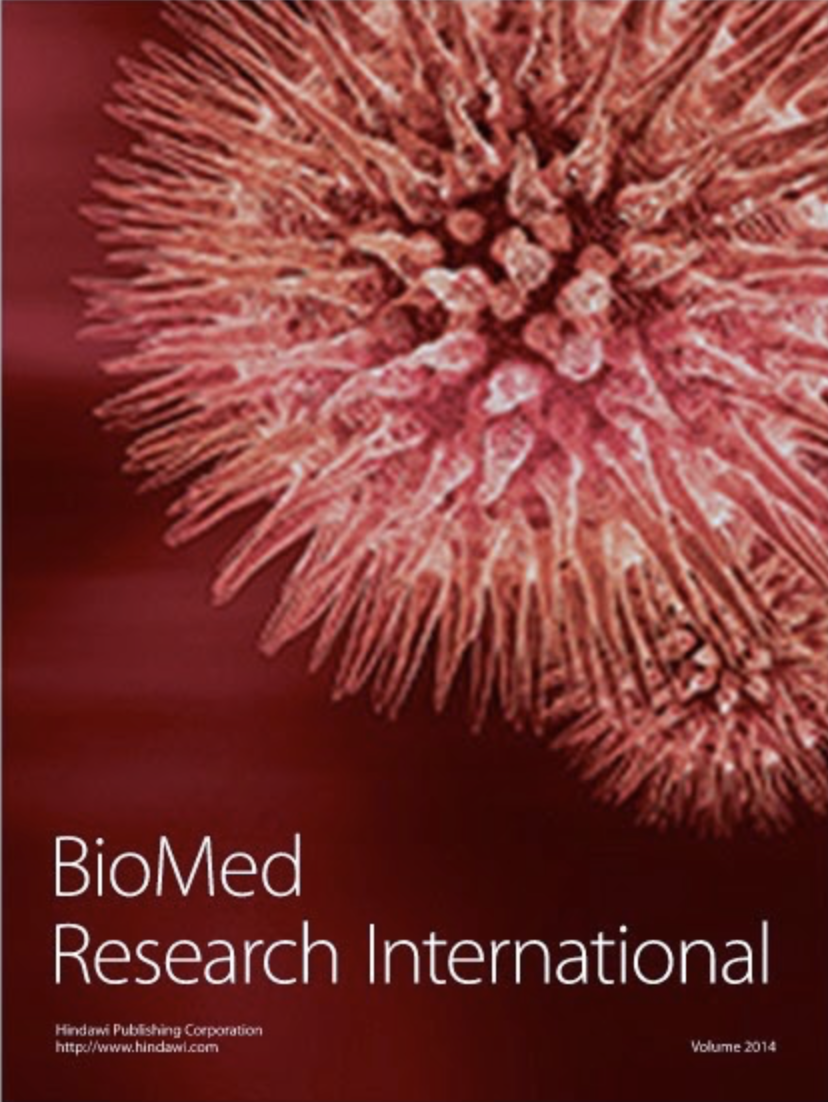
Systematic Review
Results from existing studies suggest that goji berry polysaccharide is a promising therapeutic agent, particularly in the management of liver disease, hyperlipidemia, and diabetes.
Kwok SS, Bu Y, Lo AC, Chan TC, So KF, Lai JS, Shih KC.
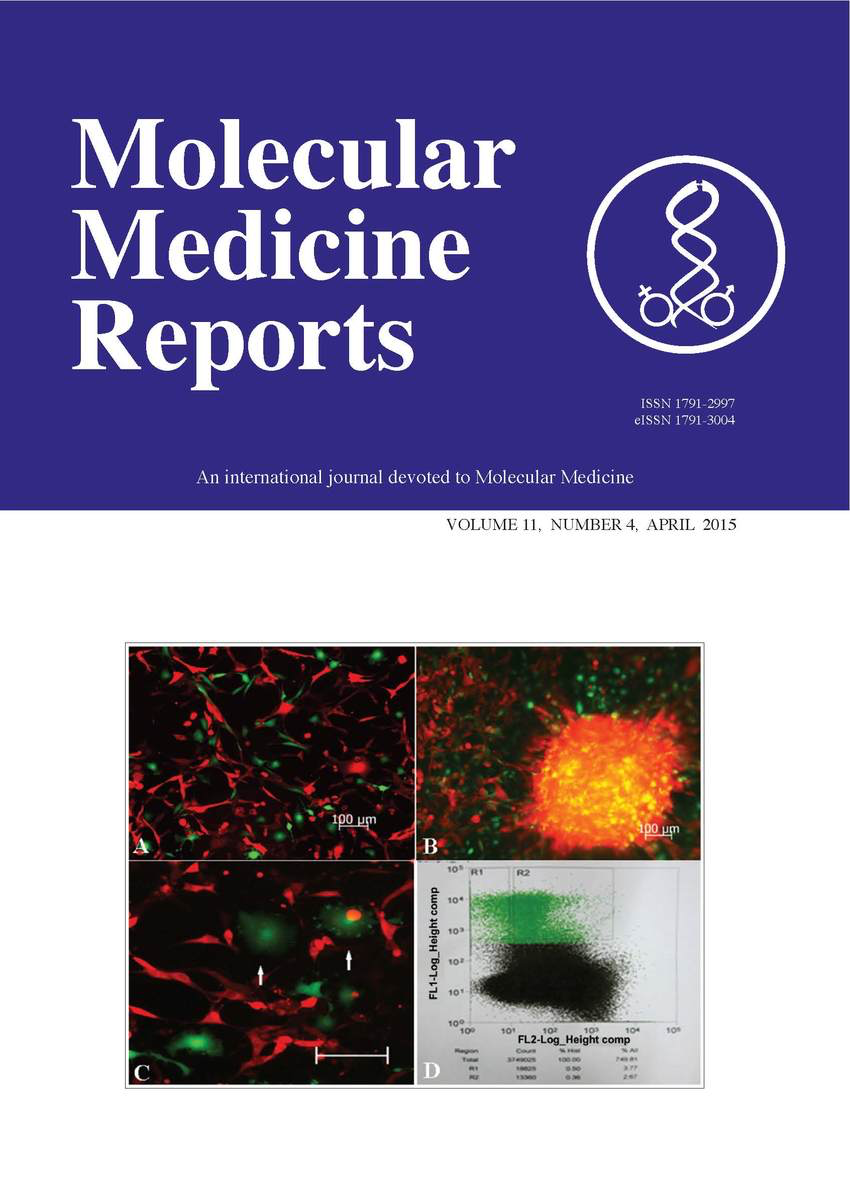
Network Pharmacology
Purified polysaccharides extracted from Tremella aurantialba mycelium have improved antioxidant properties and stimulate immune response in macrophage cells.
Deng C, Sun Y, Fu H, Zhang S, Chen J, Xu X.
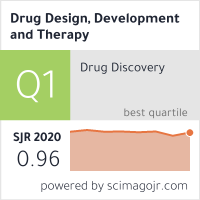
Review Article
A mixture of active polysaccharides from Goji berries have shown multiple pharmacological activities, including anti-aging, antioxidative, anti-fatigue, anticancer, anti-diabetic, anti-viral, hepatoprotective, cardioprotective, neuroprotective, hypolipidemic, radioprotective, anti-osteoporosis, anti-inflammatory, and immunomodulating effects.
Cheng J, Zhou Z, Sheng H, He L, Fan X, He Z, Sun T, Zhang X, Zhao RJ, Gu L, Cao C, Zhou S

Experimental Study
Angelica sinensis polysaccharide (ASP) efficiently stimulates erythropoietin secretion and suppresses the liver's hepcidin expression, potentially aiding in treatments of hepcidin-induced diseases.
Wang KP, Zeng F, Liu JY, Guo D, Zhang Y
Executive Summary
Write an executive summary in the form of a blog article on the topic of "Research into Chinese medicine treatment for Polysaccharides" summarising the research below and using language that can be easily understood by patients and avoiding medical jargon using a professional and caring tone of voice.
Write an executive summary in the form of a blog article on the topic of "Researched Chinese medicine treatments for Polysaccharides" summarising the research below in an objective and easy to understand way, and using language that can be easily understood by patients. Group the article into Chinese medicine treatments first, followed by nutrition and other treatments. Avoid using medical jargon and use a professional and caring tone of voice.
Write me a concise but easy to understand executive summary on the topic of "Chinese medicine treatments for Polysaccharides" based on the following research that I will give you. Your summary should be 2 paragraphs long in Australian English spelling and include references to the studies.
A Experimental Study published in 2024 in the journal International Journal of Biological Macromolecules found that A polysaccharide from Tremella aurantialba improves ulcerative colitis symptoms by targeting epithelial cell ferroptosis and modulating the gut microbiota. The methodology used in this research involved isolating TA 2-1, a specific polysaccharide from Tremella Aurantialba, and studying its effects on ulcerative colitis. This was done by introducing it to Caco-2 cells that were undergoing ferroptosis and assessing its impact on cell viability. The influence of TA 2-1 was also examined in mice with artificially induced ulcerative colitis, verifying its ameliorating effects in an in-vivo context. The structure of TA 2-1 and its components were analysed and the polysaccharide's interaction with gut microbiota was explored to understand how it might modulate symptoms or prevent cell death. The results of this study showed that TA 2-1 does not only decrease the rate of cell death in epithelial cells undergoing ferroptosis, but it also repairs the intestinal barrier by upregulating specific proteins such as claudin-1 and zonula occludens-1. TA 2-1 was also found to suppress lipid peroxidation, thus inhibiting ferroptosis. Further investigation revealed that TA 2-1 may alleviate ulcerative colitis by influencing the composition or metabolites of gut microbiota. This research offers promising insight into the potential of TA 2-1 in treating ulcerative colitis.
A Systematic Review published in 2023 in the journal Life found that Seaweed polysaccharides, especially those found in the cell walls of marine algae, hold significant potential as a natural, complementary treatment for Inflammatory Bowel Disease (IBD). The study analysed the therapeutic properties of sulfated polysaccharides, including carrageenan in red algae, ulvan in green algae, and fucoidan in brown algae, which are abundantly present in the cell walls of marine algae. Addressing key IBD pathologic treatment targets, the research explored polysaccharides' effects on inflammatory cytokines, adhesion molecules, intestinal epithelial cells, and intestinal microflora. These therapeutic targets were analyzed with an emphasis on utilizing natural substances like seaweed polysaccharides for improving IBD treatment efficacy. Building upon the theory of a nutritional preventive mechanism for IBD and the restoration of intestinal health, the findings underscore the potent therapeutic capabilities of these natural compounds. Algal polysaccharides were found to have immense potential as a complementary treatment for IBD. It was suggested that these natural substances can be developed into effective drugs and functionally nutritious products, emphasizing a natural approach towards managing this global public health issue.
A Animal Study published in 2023 in the journal Frontiers in Nutrition found that Kiwifruit polysaccharides may alleviate the toxic effects of acrylamide by improving gut health and enhancing bile acid metabolism. In this study, the team explored the potential protective effects of kiwifruit polysaccharides on disorders induced by acrylamide (a toxic ingredient found in high-temperature, carbohydrate-rich food) on gut microbiota and systemic metabolism. They measured changes in gut microbiota and serum metabolites in mice subjected to acrylamide-induced toxicity, focusing primarily on the effects on mice's bodily features, liver health, and liver enzyme activity. The results revealed that treatment with kiwifruit polysaccharides not only improved the mice's overall health and liver function but also restored the balance in their gut microbiota by increasing microbial diversity and the abundance of beneficial bacteria. Furthermore, it was found that the polysaccharides had a significant impact on amino and bile acid-related metabolic pathways, proving their potential in protecting against toxicity. A strong correlation was also found between certain bacteria and the critical metabolites of bile acid metabolism, providing a deeper understanding of the protective mechanisms of kiwifruit polysaccharides.
A Review Article published in 2022 in the journal Journal of Functional Foods found that Polysaccharides from natural food sources like fungi and plants can significantly enhance intestinal health and prevent ulcerative colitis (UC) through various physiological activities. The study primarily focused on the role of natural food polysaccharides in promoting intestinal health. Derived from sources like edible fungi and plants, these substances exhibit remarkable potential in preventing UC, a common inflammatory bowel disease. The researchers have investigated their action mechanism which mainly involved promoting beneficial bacteria, reducing harmful bacteria, increasing Short Chain Fatty Acids (SCFA) content, and exerting prebiotic effects. The polysaccharides' ability to prevent UC by blocking certain cellular pathways, regulating tight junctions, repairing the intestinal barrier function, inhibiting oxidative stress, and mitigating oxidative damage to the colon tissue was also explored. The structure of these polysacaccharides and their relationship to the prevention of UC were however not covered fully in the study. The obtained results deliver a profound understanding of the preventive effects of natural food polysaccharides on UC. Their capacity to promote beneficial bacteria while reducing the harmful species has been emphasized. They were also found to increase the content of SCFAs and act as prebiotics. Additionally, their role in blocking certain signaling pathways and thus preventing oxidative stress and damage further presents them as effective defense agents against UC. The observations related to the relationship between the structure of these polysaccharides and the prevention of UC were less conclusive. This study, however, did note a lacking of clear connection between the molecular weight of polysaccharides and their preventive effects, leaving room for future extensive study in this area.
A Experimental Study published in 2022 in the journal Frontiers in Pharmacology found that Oral administration of Tremella fuciformis polysaccharides may constitute a new, effective therapy for Atopic dermatitis, improving both immune response and intestinal microbiota. In the methodology of this study, the therapeutic effects of Tremella fuciformis polysaccharides (these have multiple biological activities), on Atopic dermatitis, were examined through both topical application and oral administration on mice induced with Atopic dermatitis-like disorder. The changes across transdermal water loss, epidermal thickening, and ear edema in the affected mice were observed. Notably, the study also considered the polysaccharides' impacts on the proportion of specific regulatory T cells in the mesenteric lymph nodes of the mice. The results showed that both therapeutic methods positively impacted the conditions of the affected mice, with oral administration offering superior efficacy over topical application. The oral administration of the polysaccharides led to an increase of specific regulatory T cells, evidence of immune regulation. Further, non-targeted metabolomics and sequencing of certain DNA amplicons pointed towards observable modulation in fecal metabolites and a changed composition of gut microbiota in the mice following the oral treatment.
A Review Article published in 2022 in the journal Critical Reviews in Food Science and Nutrition found that Goji berries, notably their polysaccharides, exhibit protective effects against inflammatory bowel disease through the preservation of healthy gut microbiota. The review encompassed an in-depth analysis of current literature specially focusing on the role of goji berry and its important functional constituents in countering Inflammatory Bowel Disease (IBD). The core attentiveness of the research is directed towards understanding the interplay between goji berries, particularly their polysaccharides, and gut microbiota. The goji berries’ protective effects were evaluated, focusing on how they curb disruption in gut microbiota, a common facet in IBD. The review concluded that goji berries, especially their polysaccharides, demonstrated appreciable benefits in averting gut microbiota disturbances seen with IBD, thus protecting against this condition. These natural substances, present in goji berries, function as prebiotics, which maintain a balanced gut microbial ecosystem. The research further revealed that proper functioning of gut microbiota and their metabolites was a crucial element in mediating these beneficial effects against IBD, thus cementing the role of dietary interventions in managing diseases linked with gut health.
A Systematic Review published in 2021 in the journal International Journal of Biological Macromolecules found that Tremella fuciformis polysaccharides effectively reduce inflammation in ulcerative colitis, promoting healing by restoring intestinal and mucus barrier functions. In this study, two models were utilized to investigate the impacts of Tremella fuciformis polysaccharides on ulcerative colitis: a dextran sodium sulfate-induced mice model and a lipopolysaccharide-stimulated model using Caco-2 cells. First, the dextran sodium sulfate-induced mice ulcerative colitis model was administered with the Tremella fuciformis polysaccharides. Effects were observed across several indicators such as body weight, colon length, and thickness, as well as intestinal permeability. Following that, histopathological analysis and electron microscope examinations helped delve deeper into the relationship, uncovering a reduction in inflammatory cell infiltration and a restoration of the intestinal epithelial barrier integrity. The lipopolysaccharide-stimulated Caco-2 cells model was used to further understand the role of these polysaccharides in reducing expressions of pro-inflammatory cytokines and increasing expressions related to intestinal barrier and mucus barrier.
A Systematic Review published in 2021 in the journal International Journal of Immunopathology and Pharmacology found that Tremella polysaccharide is a safe natural active ingredient, which can be used in the prevention, treatment and rehabilitation of diseases. Tremella polysaccharide is a full-functioning active substance, and any of its activities are not independent, but complementary to other activities. For example, Tremella polysaccharides can participate in various physiological activities such as type II diabetes, cardiovascular disease, metabolic syndrome, inflammation and aging by regulating the expression of SIRT1 protein, which is in line with the guidelines of eastern medicine to maintain the dynamic balance of the human body through conditioning. Tremella polysaccharides are non-toxic and harmless natural ingredients that can be used for long-term contact with the human body by smearing or oral administration. It means that Tremella polysaccharides are suitable for the daily health needs of sub-healthy people and can be widely used in food, medicine and daily chemical products.
A Systematic Review published in 2021 in the journal Journal of Cosmetic Dermatology found that These results indicate that a certain concentration of snow fungus polysaccharides can effectively alleviate skin damage caused by UVA, and they may be used as an effective component of cosmetics. Tremella fuciformis polysaccharides (TFPS) pretreatment can reduce the oxidative stress of UVA-treated human dermal fibroblasts cells. After TFPS pretreatment, the content of ROS and MDA in the cell decreased significantly and the total antioxidant activity was increased. Among them, the active of CAT, SOD, and GSH-Px in the cells increased significantly. TFPS can also protect fibroblasts by up-regulating Nrf2 and down-regulating Keap1 expression. Finally, it was also found that TFPS pretreatment increased the content of collagen I, elastin, and hyaluronic acid (HA) in skin fibroblasts treated with UVA.
A Review Article published in 2021 in the journal International Review of Neurobiology found that Goji berries have significant potential as a natural medicine in anticancer efforts due to their high content of active compounds. The research involved extraction and analysis of various fractions from goji berries to ascertain their impact on different types of cancer. These fractions included polysaccharides, polyphenols, flavonoids, carotenoids and their derivatives, and they were tested against particular types of cancer cells, such as those of breast carcinoma. The effect of these extracts on normal human cells, however, has not been explored. Two distinct stages were mapped out: one with a pectin-free fraction of goji berry extract used to inhibit the growth of two breast cancer cell types, and another phase involving an ethanol extract inhibiting a different breast cancer cell line. In the discussion of results, the study revealed that various extracts from goji berries exhibit antiproliferative properties against different types of cancer cells. Evidence shows that a certain pectin-free fraction of the goji extract inhibited the growth of specific types of breast cancer cells, while an ethanol extract curtailed the proliferation of another type in a time- and dose-dependent manner. The study also found that goji polysaccharides not only influence estrogen metabolism but also activate certain cellular signaling pathways and increase the expression of a certain protein.
A Experimental Study published in 2021 in the journal Oxidative Medicine and Cellular Longevity found that Dandelion polysaccharide (DP) can potentially reduce iron overload in hepatocellular carcinoma (HCC) by downregulating hepcidin levels and inhibiting the IL-6-activated JAK-STAT signaling pathway. In the study, researchers focused on clarifying the effects of dandelion polysaccharide (DP) on iron metabolism and the mechanisms underlying these effects. The basis of their study was earlier findings that indicated a correlation between iron overload and the risk of hepatocellular carcinoma (HCC), conditions that their previous studies showed could be managed with DP through causing cell cycle arrest and inhibiting the PI3K/AKT/mTOR pathway. To get their results, researchers used RNA sequencing and western blot testing on hepatoma cells and grafted tumors subjected to DP treatment. The results of the mentioned testing methods showed that DP could lower the iron burden in hepatoma cells. It was further discovered that DP had the ability influence hepcidin, a significant regulator in iron metabolism, expression levels. Hepcidin was found in higher levels in HCC tumor tissues compared to adjacent non-tumor tissues. But, with DP treatment, expression of hepcidin was downregulated in both hepatoma cells and the liver of the mouse model used. These findings led to the conclusion that the DP was effective in inhibiting the IL-6-activated JAK-STAT signaling pathway.
A Review Article published in 2020 in the journal Marine Drugs found that Seaweed extracts and polysaccharides are effective candidates for developing drugs and functional nutrition products to treat inflammatory bowel disease. The methodology summarized in this research paper encompasses examining natural compounds, specifically derived from seaweed, which could potentially serve as therapeutic agents for IBD. Concentrating on the unique structural features of algal polysaccharides, the researchers observed their interaction with several factors associated with IBD, such as proinflammatory cytokines, chemokines, adhesion molecules, intestinal epithelial cells, and reactive oxygen and nitrogen. In discussing the results, it was seen that the seaweed extracts and polysaccharides show promise in influencing key therapeutic targets related to IBD, suggesting their potential utility in the development of treatment options for patients. These include drugs, biological food additives, and functional nutrition products. This conclusion was drawn by noting the influence of these extracts and polysaccharides on immune and epithelial cells as well as intestinal microorganisms.
A Systematic Review published in 2019 in the journal Nutrients found that The mung bean has been documented to ameliorate hyperglycemia, hyperlipemia, and hypertension, and prevent cancer and melanogenesis, as well as possess hepatoprotective and immunomodulatory activities. The mung bean has been documented to ameliorate hyperglycemia, hyperlipemia, and hypertension, and prevent cancer and melanogenesis, as well as possess hepatoprotective and immunomodulatory activities. These health benefits derive primarily from the concentration and properties of those active compounds present in the mung bean. Vitexin and isovitexin are identified as the major polyphenols, and peptides containing hydrophobic amino acid residues with small molecular weight show higher bioactivity in the mung bean.
A Systematic Review published in 2019 in the journal BioMed Research International found that Results from existing studies suggest that goji berry polysaccharide is a promising therapeutic agent, particularly in the management of liver disease, hyperlipidemia, and diabetes. Lycium barbarum polysaccharides (LBPs) have a number of promising therapeutic uses in the liver disease, metabolic disorders, immune dysfunction, aging, neuroprotection, cancer, and ocular surface diseases. These potential applications should be thoroughly assessed through further in vivo studies and ultimately in well-designed randomized controlled clinical trials. One major limitation of current research is a lack of standardization and quality control for the LBP used. The availability of research-grade LBP, of consistent concentration, will help promote further interest and robust research work in this field.
A Network Pharmacology published in 2016 in the journal Molecular Medicine Reports found that Purified polysaccharides extracted from Tremella aurantialba mycelium have improved antioxidant properties and stimulate immune response in macrophage cells. The study researched the physiochemical and biological properties of crude and purified mycelium polysaccharides from Tremella aurantialba mycelium. A series of physiochemical properties were examined including total sugar, uronic acid and protein content, monosaccharide type and structure, as well as molecular weight. The antioxidant activity of these polysaccharides was studied via their reducing power and scavenging activity of different radicals. Additionally, the study evaluated the potential immunostimulatory activity of these polysaccharides by examining their effects on the proliferation, nitric oxide production and cytokine secretion of a certain type of cell. In the results, it was found that the purified mycelium polysaccharide consisted mainly of three types of sugars and its molecular weight was determined. Comparing the total carbohydrate content, it was discovered that the purified mycelium polysaccharide has significantly higher carbohydrate content compared to its crude counterpart. From the analysis of antioxidant and immunostimulatory activities, the purified polysaccharide showed improved antioxidant properties and the ability to induce macrophage proliferation, nitric oxide production and secretion of several chemicals involved in immune response. This indicates a possible correlation between the total carbohydrate content and the enhanced antioxidant and immunostimulatory activities.
A Review Article published in 2014 in the journal Drug Design, Development and Therapy found that A mixture of active polysaccharides from Goji berries have shown multiple pharmacological activities, including anti-aging, antioxidative, anti-fatigue, anticancer, anti-diabetic, anti-viral, hepatoprotective, cardioprotective, neuroprotective, hypolipidemic, radioprotective, anti-osteoporosis, anti-inflammatory, and immunomodulating effects. The mechanisms for these beneficial effects are multifaceted, involving a number of signaling molecules and pathways. A better understanding of how LBPs act on these signaling pathways and molecules can improve our knowledge on glycobiology. Further studies using systems pharmacology approaches such as proteomic and metabolomic analysis are needed to uncover the molecular target networks of LBPs. Despite the importance of Goji in the traditional Chinese medicine and increased popularity in Western countries, clinical safety data on LBPs are sparse. A safe and optimal use of herbal medicines like LBPs requires a full understanding of their pharmacokinetics, side effects, and mechanisms of action. The dose–response and dose–toxicity relationships of LBPs should be established in animal and human studies. It is essential to develop new formulations to ensure the maximum efficacy and effectiveness and minimum side effects of LBP-related health products.
A Experimental Study published in 2011 in the journal Journal of Ethnopharmacology found that Angelica sinensis polysaccharide (ASP) efficiently stimulates erythropoietin secretion and suppresses the liver's hepcidin expression, potentially aiding in treatments of hepcidin-induced diseases. In observing the effects of ASP, a substance derived from a plant used in traditional Chinese medicine, the researchers administered the substance daily to rats through intragastric methods for a period of 14 days. Apart from this, a group of positive control rats also received injections of recombinant human erythropoietin. The researchers then monitored the levels of erythropoietin and hepcidin in the serum at various times using an enzyme-linked immunosorbent assay. Additionally, the researchers used the Western blot method to examine the expression of six key signal proteins in the liver. The results revealed that ASP notably diminished the liver's expression of hepcidin, a factor known for negatively regulating the body's iron metabolism. This reduction was primarily facilitated through inhibiting the expression of specific liver proteins (STAT3/5 and SMAD4) and stimulating the secretion of erythropoietin. This stimulation led to further down-regulation of hepcidin, a process aided by reducing the liver's expression of other proteins (C/EBPα, SMAD4, and the phosphorylation process of STAT3/5). Hence, the research suggests ASP can effectively suppress hepcidin expression in normal rats.
Moderation Tools
Topic
Sign In
Users not signed in are limited to viewing the 5 most recent items of content.